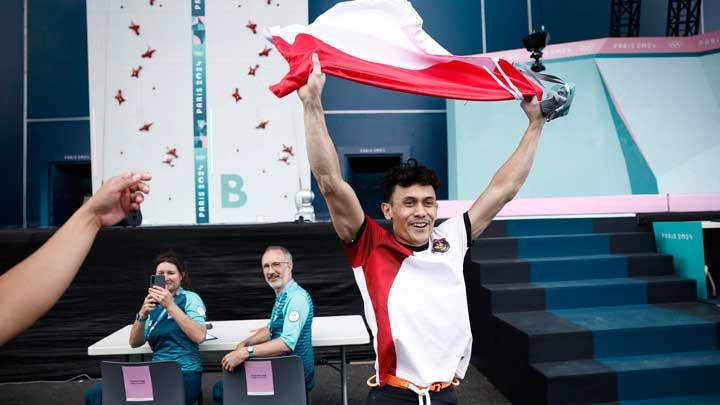Can the Olympic Games Still Bring Communities Together?
Translator
Editor
27 July 2024 13:18 WIB

By: Steve Georgakis, Senior Lecturer of Pedagogy and Sports Studies at the University of Sydney
Despite a political climate hellbent on tearing communities apart, the Olympics still holds the potential to bring disparate nations together.
The success of the 2024 Paris Olympic Games will strangely rely on the convergence of two opposing forces: nationalism and internationalism.
Since the first modern Olympics in 1896, the games have successfully promoted both simultaneously.
However, that success has a scattered history across the decades. There has been a success at bringing nations together, through the unifying power of sport, such as athletes from the two Koreas marching together at Sydney 2000, or the Olympic team consisting entirely of refugees from across the globe debuting at Rio de Janeiro in 2016.
Yet weighing on these moments are the just as iconic images of the games being hijacked by politics. From Adolf Hitler's Nazi political machine at Berlin in 1936, the 2018 Winter Olympic Opening ceremony being hijacked by Donald Trump's overtures to North Korean leader Kim Jong Un, or the tit-for-tat Cold War boycotts of 1980 (Moscow) and 1984 (Los Angeles).
The games show that sports and politics will always mix.
Currently, France is wading through its own political turmoil following a bruising election that saw the anticipated far-right National Rally group lose the chance to form a government, losing out to the far-left New Popular Front.
The global geopolitical machinations are far more grim, with multiple conflicts across the globe well underway as the Olympics attempt to steal focus.
Despite this, the French will likely host the successful game embraced by most of the world. This is because the International Olympic Committee (IOC) has cleverly molded the movement into concurrently promoting nationalism and internationalism.
The global games
The IOC is not a "perfect" institution but from its origins positioned itself as promoting internationalism.
Of course, there were no games during World War One and World War Two and there were also the well publicised boycotts during the Cold War and African nations boycotting over New Zealand's sporting links with South Africa in 1976. In the games' formative years, representation was limited to the world's richest countries and mostly middle and upper class men.
The institution itself has been embroiled in significant corruption and controversies. But even the harshest of critics will acknowledge its rise as a global phenomenon. The move to internationalism was clearly assisted by the interest demonstrated by commercial influences.
The games have been beamed around the world on television since 1964 and have since assumed the role of an international unifying force. Sporting competitions such as the Olympics and to a lesser extent the FIFA men's World Cup were positioned as mega global events and this was cemented with the arrival of globalism in the 1990s.
The 21st-century Olympic Games have been broadcast to billions around the world. The 2016 Rio Olympics were viewed by more than 3.2 billion people.























